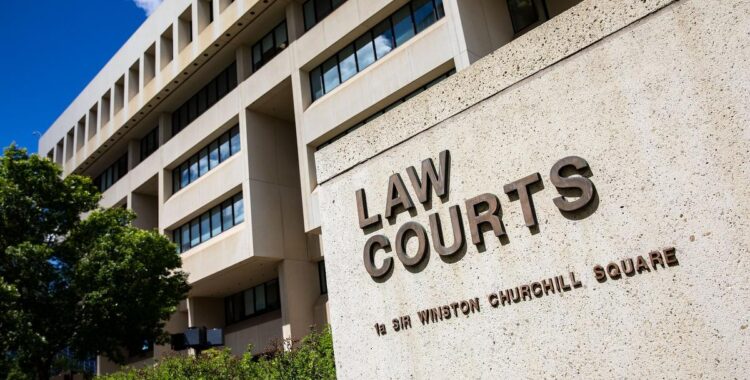Provincial Court of Alberta Pre-Trial Resolution
In January 2019, the Provincial Court Act was amended in an effort to streamline the procedures for dealing with civil claims. Under these new amendments, there are now four resolution tracks that an action may be screened into. A matter is screened into one of these four tracks if it is determined that the matter is not appropriate for mediation, or in the event that mediation of the matter was unsuccessful.
It is important to have an understanding of each resolution track so that you know what to expect after commencing a civil lawsuit in Provincial Court.
Binding Judicial Dispute Resolution (BJDR)
A BJDR can only proceed by consent of both parties. If one party declines to participate, the matter will be screened into another resolution track by the Court. The emphasis at a BJDR is on settlement. During a BJDR, the Judge may meet with the parties separately in order to facilitate a resolution of the matter at hand and will review copies of records and documents provided by both parties. If a settlement is reached, the settlement is then formalized by way of a Judge’s Order or a Written Settlement Agreement signed by both parties.
If a settlement is not reached, the Judge has the power to make a binding decision regarding settlement which cannot be appealed by either party or to recommend that the BJDR be terminated and the action proceeds to a pre-trial conference or trial instead. Since the decision of a Judge during a BJDR can be binding it is a good idea to seek legal representation or advice before attending a BJDR.
Pre-Trial Conference
The purpose of a Pre-Trial Conference (PTC) is to settle the action by way of agreement between the parties. Parties are required to exchange documents and records relevant to the action at least 14 days before the PTC. During the PTC, the presiding Judge may discuss the issues with each party in order to identify and simplify the issues at hand. The Judge may also make an order that pleadings in the action be amended, or in some cases struck out.
Typically, the Judge’s main purpose at PTC is to gauge how far apart the parties are in regards to reaching a settlement and to make orders which may help facilitate such a settlement, such as orders for document disclosure. If the parties cannot settle the action by way of agreement, the PTC Judge will set a trial date for the action.
Simplified Trial
A matter is usually screened into this resolution track if the Court determines that the issues at hand are less complex and that the trial would be short in length (usually two hours or less). Matters screened into this track usually do not proceed to a PTC first. In a Simplified Trial, the parties are required to file a document called a trial statement. The trial statement should be filed at least 14 days before the date of the simplified trial and served on each party at least 7 days before the simplified trial date. The trial statement must include a short summary of the facts and evidence that each party intends to present to the Court, as well as a summary showing how the amount claimed in the action has been calculated. All relevant documents that the party intends to rely on at trial must also be attached.
On the day of trial, the procedure is usually a little less formal than a general trial as the Judge has already had a chance to review the facts and evidence presented by each party. This means that a simplified trial is often much shorter in length and less complex than a general trial.
General Trial
Once an action is screened into the resolution track for a general trial, the parties will usually be required to attend a Pre-Trial Conference (PTC) before a trial date is set. If the matter is not settled at the PTC, the PTC Judge will make an order setting out the date and time allotted for the trial. General trials are much more formal than the other resolution tracks, and often require the use of witnesses or experts to give evidence on a matter. At the end of the trial, a judge may reserve their decision (give it at a later date), or make an immediate decision regarding the matter, and the relief sought.

